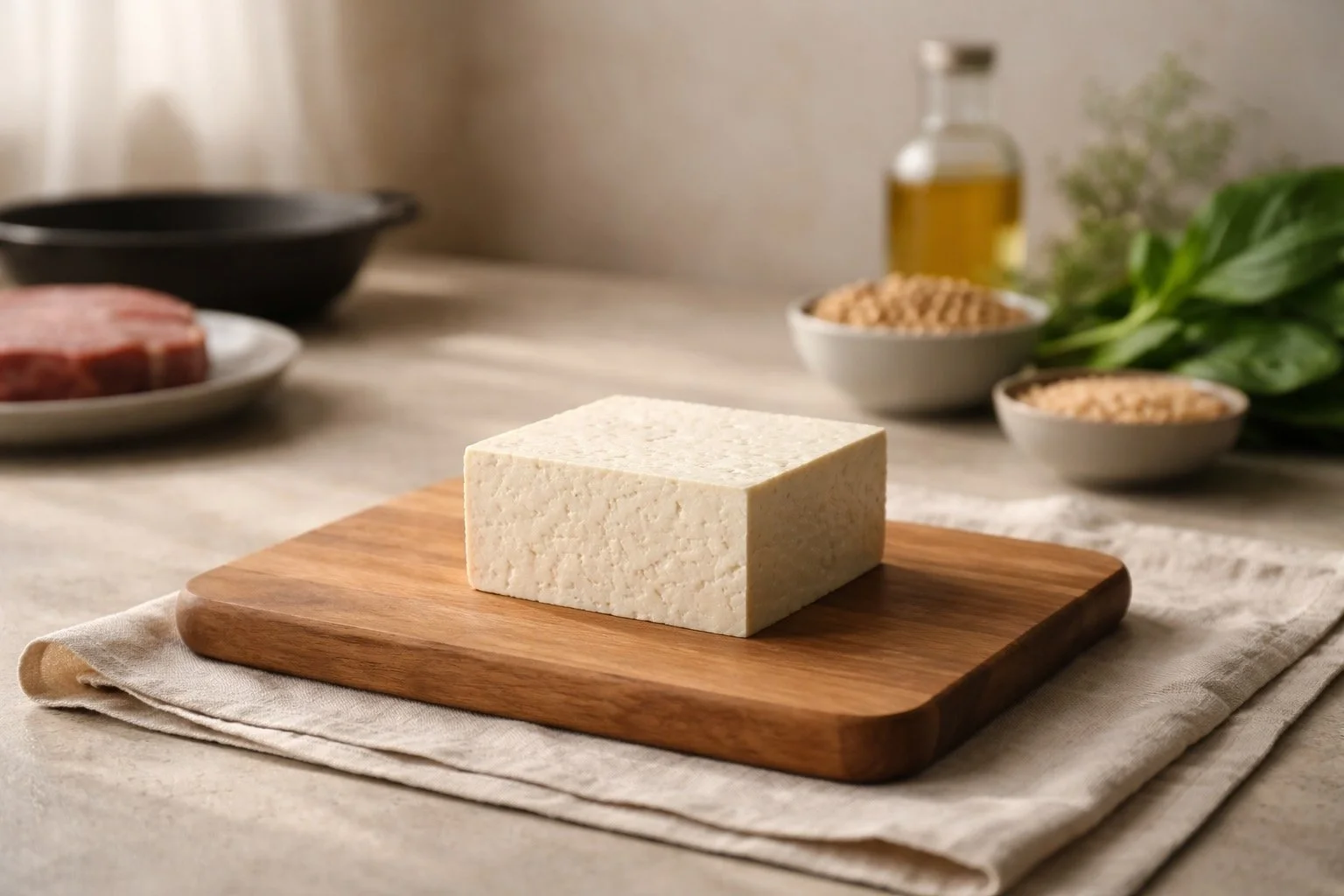Is Tofu Feminine? The Weird Myth That’s Holding Men Back
The Question No One Asked (But Everyone Absorbed)
At some point, tofu stopped being food and started being a symbol.
Not of health.
Not of tradition.
But of femininity—and therefore, in some minds, weakness.
This association is rarely spoken out loud, yet it quietly shapes behaviour. Men order steaks instead of tofu. They joke about soy lattes. They avoid tofu not because they dislike it, but because of what it supposedly signals.
And that’s where things get strange.
Because tofu itself has nothing to do with gender.
Where Did This Myth Even Come From?
The idea that tofu is “feminine” is not ancient. It’s surprisingly recent.
For most of its history, tofu was simply protein. In East Asian cuisines, it was eaten by everyone—farmers, monks, warriors, elders, and children. It showed up in stews, fried dishes, broths, street food, and temple meals. No gendered meaning attached.
The myth only really took hold in modern Western culture, where three things collided:
Meat became a symbol of masculinity
Red meat marketing leaned heavily into strength, dominance, and power.Plant-based food became “other”
Health food, diet food, or “special” food.Soy got dragged into hormone panic
Misunderstood science met internet amplification.
Tofu didn’t change.
The story around it did.
The Soy–Estrogen Panic (In Plain English)
A lot of the masculinity anxiety around tofu comes down to one word: estrogen.
Yes, soy contains isoflavones.
No, they are not human estrogen.
Isoflavones are phytoestrogens—plant compounds that are structurally similar but biologically very weak. In adult men, they do not raise estrogen levels or lower testosterone in any meaningful way.
Large-scale reviews consistently show that normal soy intake has no feminising effect on men.
If tofu actually reduced masculinity, entire cultures that have eaten soy daily for centuries would have noticed.
They didn’t.
Strength Was Never About What You Avoid
There’s something revealing about the myth itself.
Foods coded as “masculine” are often:
Heavy
Aggressive
Excessive
Hard to digest
Foods coded as “feminine” are often:
Light
Balanced
Adaptable
Nourishing
But real strength—physical or otherwise—has never been about rejecting softness. It’s about control, resilience, and adaptability.
Tofu isn’t fragile.
It’s structural.
It can be silky or dense. Absorbing or crisp. Subtle or intensely savoury. It responds to heat, pressure, fermentation, and fat with precision. That’s not weakness—that’s versatility.
The Quiet Cost of This Belief
The “tofu is feminine” myth doesn’t just hurt tofu’s reputation. It quietly narrows men’s relationship with food.
It discourages:
Trying new textures
Exploring non-meat proteins
Eating lighter meals without guilt
Cooking with curiosity instead of performance
It also keeps tofu stuck in one box: a meat substitute.
Which is ironic, because tofu doesn’t exist to replace meat. It exists to be tofu.
Masculinity Doesn’t Live on the Plate
Here’s the uncomfortable truth:
If a block of soy can threaten someone’s sense of masculinity, the issue isn’t the food.
Food doesn’t have gender.
Ingredients don’t have identities.
Only stories do.
And this story—this strange, outdated myth—is holding people back from one of the most versatile, affordable, and sustainable proteins on the planet.
Tofu doesn’t ask you to be softer.
It asks you to be less afraid.
A Final Thought
At Tofu World, we don’t see tofu as delicate or defiant. We see it as neutral, powerful, and open-ended.
What you do with it—that’s where character shows.
Maybe the real question isn’t whether tofu is feminine.
Maybe it’s why so many people were taught that femininity is something to avoid in the first place.
Every meal is a chance to question the stories we’ve inherited.
Sometimes, that starts with a quiet block of tofu on a cutting board—and the courage to see it clearly. 🌱

